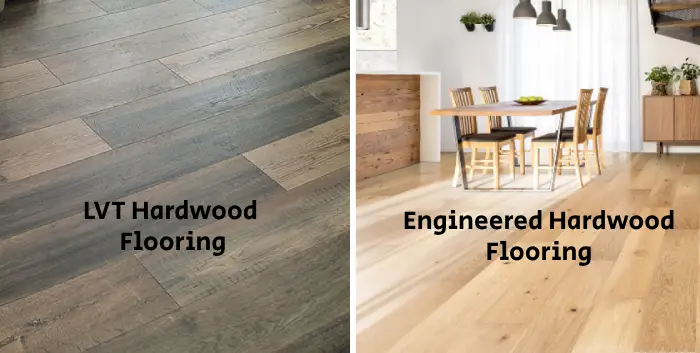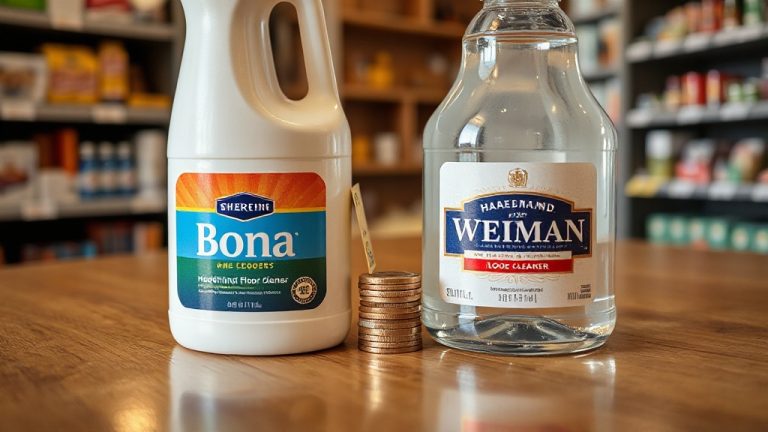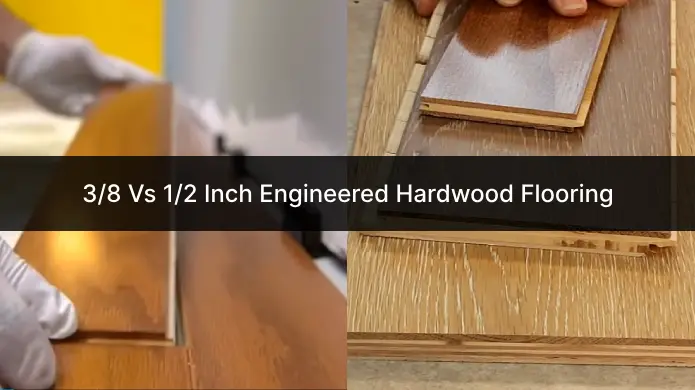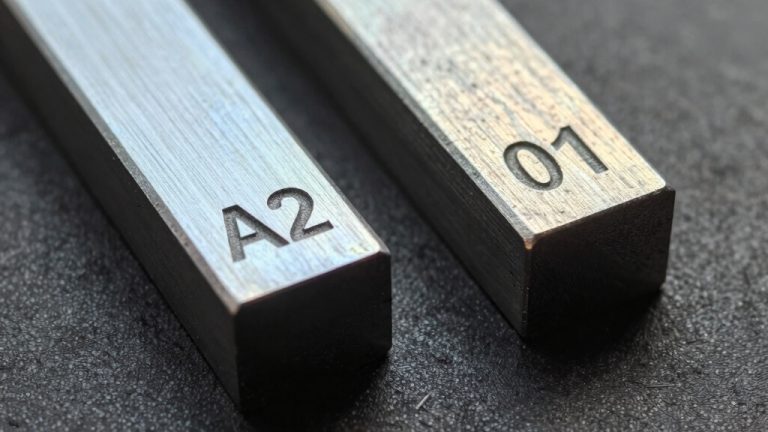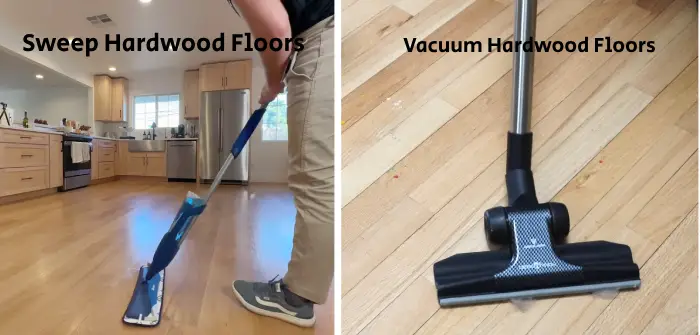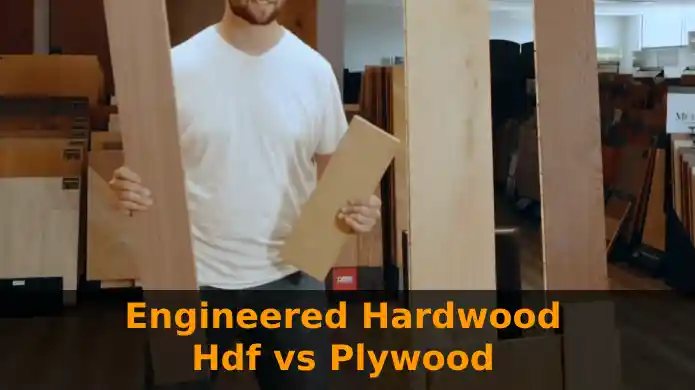LVT vs Engineered Hardwood: Comparative Analysis
Flooring material selection is an important decision for your home or business. Luxury Vinyl Tile (LVT) and Engineered Hardwood are two popular options that offer the look and feel of real wood or stone. But there are some significant differences between them.
LVT is made from synthetic materials, while engineered hardwood is made from real wood veneer layered over a plywood base. Both options offer a range of appearances and aesthetics, but LVT may provide more variety in color and pattern options.
Today, we’ll compare LVT and engineered hardwood. Considering the differences between these two floorings, you can decide which option is best for your home or business. So keep reading.
LVT vs Engineered Hardwood: Comparative Analysis
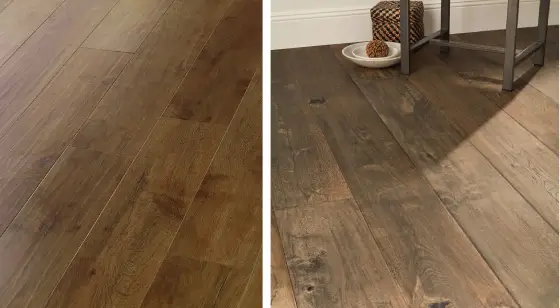
If you’re considering flooring options for your home, you may wonder about the differences between LVT and engineered hardwood. Let’s look at key differences to help you make an informed decision.
- Material Composition:
- Appearance and Aesthetics:
- Durability and Maintenance:
- Water Resistance:
- Ease of Installation:
- Price Range:
- Environmental Impact:
1. Material Composition:
The material composition of LVT and engineered hardwood differs greatly. LVT is made of highly moisture-resistant PVC and features a photographic top layer that replicates the appearance of real wood or stone.
In contrast, engineered hardwood consists of a solid wood veneer layer on top, bonded to several layers of plywood or high-density fiberboard (HDF) for enhanced stability.
2. Appearance and Aesthetics:
Both LVT and engineered hardwood offer stunning appearance and aesthetics that can elevate the look and feel of your home.
LVT can mimic the look of natural wood or stone, providing a variety of styles, colors, grains, and finishes. The plank widths can vary from narrow to wide, giving you the flexibility to customize the look of your flooring.
Conversely, engineered hardwood provides a genuine wood veneer nearly indistinguishable from solid hardwood. Its authentic and warm look provides a timeless and elegant appearance that can complement any room.
With various wood species, finishes, and styles available, you can choose the perfectly engineered hardwood flooring to match your decor and personal style.
3. Durability and Maintenance:
Regarding durability and maintenance, LVT is the clear winner over engineered hardwood. LVT is highly resistant to scratches, stains, and moisture, making it ideal for high-traffic areas.
It can withstand heavy use without showing signs of wear, which means you won’t have to worry about replacing it anytime soon. Plus, it’s easy to clean and maintain. You only need to sweep it regularly and damp mop it occasionally.
Meanwhile, engineered hardwood is more susceptible to scratching, chipping, and fading than LVT. It requires protection from excessive moisture and direct sunlight, which can be challenging to manage in some homes.
Regular cleaning involves dry or slightly damp mopping, and periodic refinishing may be necessary, depending on the thickness of the solid wood veneer.
4. Water Resistance:
You want water-resistant flooring that’ll weather any wetness with ease, and both LVT and engineered hardwood offer some level of protection against moisture.
LVT is designed to be waterproof, making it an ideal choice for high-moisture areas like bathrooms, kitchens, and basements. It can handle spills and humidity without warping or damage, providing a durable, low-maintenance flooring option.
In contrast, engineered hardwood can tolerate minor spills or moisture fluctuations but isn’t completely waterproof. If exposed to excessive moisture, it can warp or cup, causing damage to the flooring and requiring costly repairs. Regarding water resistance, LVT has a clear advantage over engineered hardwood.
5. Ease of Installation:
If you’re looking for a flooring option to install yourself, LVT may be a more attractive choice. Its user-friendly installation options, such as the click-lock system, glue-down method, or peel-and-stick installation, make it a popular choice for homeowners who prefer a DIY project.
On the other hand, engineered hardwood typically requires professional assistance for installation. While it can be installed as a floating floor using a click-lock or tongue-and-groove system, the nailed/stapled or adhesive installation process can be complicated and time-consuming.
6. Price Range:
Regarding price, it’s worth noting that the cost of luxury vinyl flooring can range from $4 to $10 per square foot, while engineered hardwood typically falls between $6 and $20 per square foot, including labor costs.
7. Environmental Impact:
While LVT is made from PVC, which isn’t biodegradable and can contribute to landfill waste, engineered hardwood can be a more sustainable option if sourced from responsibly managed forests or using recycled materials.
Conversely, PVC production, used in making LVT, involves using fossil fuels and releases toxins during manufacturing. This can significantly contribute to environmental degradation.
A more eco-friendly option would be to choose engineered hardwood, especially those that come from certified sustainable sources. By doing so, you can help minimize the negative impact of your flooring choice on the environment.
What are the advantages of LVT over engineered hardwood?
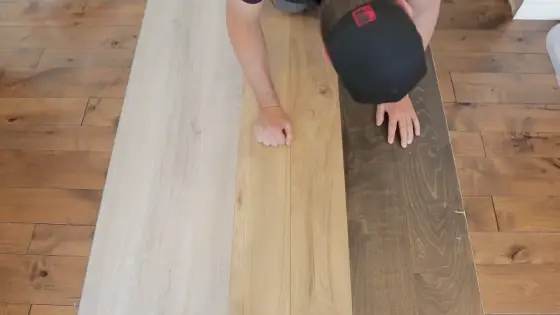
You’ll appreciate the benefits of choosing luxury vinyl tile over engineered hardwood, including its:
- Superior resistance to scratches and scuffs,
- Ability to provide complete water protection and
- Low-maintenance durability.
Unlike hardwood floors, which need to be refinished periodically to maintain their appearance, LVT is incredibly low-maintenance. Simply sweeping and mopping the floor regularly is enough to keep it looking great for years to come.
But perhaps the most significant advantage of LVT over engineered hardwood is its resistance to scratches and scuffs. LVT is made from multiple layers of material, including a wear layer specifically designed to resist damage from high foot traffic and other sources of wear and tear.
Why is LVT flooring so popular?
It’s no wonder why luxury vinyl tile (LVT) has become a popular flooring choice. LVT offers homeowners a low-maintenance and durable option that can withstand moisture and high foot traffic, thanks to its 100% waterproof feature.
Unlike wood flooring, laminate flooring, and carpet, LVT flooring does not get damaged easily by excess moisture. This makes it perfect for bathrooms, kitchens, and laundry rooms, where water spills are more likely to occur.
Also, LVT flooring is easy to install and maintain. This makes it an affordable option for many homeowners. It comes in various colors, textures, and patterns, allowing homeowners to create a unique and personalized look.
What are the disadvantages of LVT flooring?
Unfortunately, some adhesives used to install vinyl flooring can be difficult to remove and require much effort to take off. This can be especially frustrating if you decide to change your flooring in the future.
The adhesive can stick to the subfloor and cause damage when trying to remove it. You may need to hire a professional to remove it, which can be costly.
Another disadvantage of LVT flooring is that vinyl is a soft material. While this can make it comfortable to walk on, it also means that it can be easily scratched or dented.
Heavy furniture, high heels, and even pet claws can all leave marks on the surface of the flooring. This can be particularly problematic in high traffic areas or if you have children or pets.
To give you a better idea of the differences between LVT and engineered hardwood flooring, take a look at the table below:
| Property | LVT flooring | Engineered hardwood flooring |
| Durability | Not as durable as hardwood | More durable than LVT |
| Installation | Easy to install, but adhesive can be difficult to remove | More difficult to install but can be easily removed |
| Appearance | Can mimic the look of hardwood, but not as authentic | Authentic hardwood look and feel |
| Cost | Generally less expensive than hardwood | Generally more expensive than LVT |
What are the advantages of engineered hardwood?
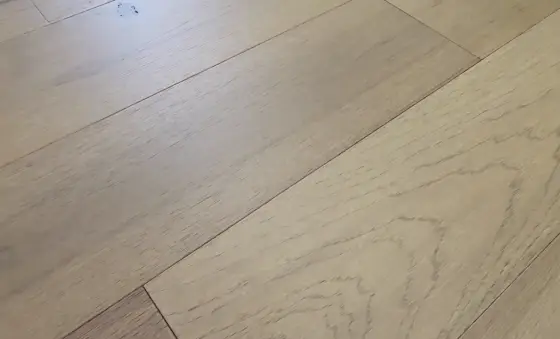
One major benefit of engineered hardwood is that it can increase the resale value of your home. Studies have shown that homes with hardwood flooring sell faster and for higher prices than those without. Hardwood flooring provides a timeless and classic look that appeals to many buyers.
Also, engineered hardwood is highly durable and can withstand wear and tear, making it a wise investment for homeowners looking to increase the value of their homes.
Another advantage of engineered hardwood is its aesthetic appeal. Unlike LVT flooring, which can sometimes look artificial and lack the warmth and character of natural wood, engineered hardwood provides the beauty of real wood without the drawbacks of solid hardwood.
What are the disadvantages of engineered hardwood?
Despite its durability, engineered hardwood is still susceptible to scratches and dents over time, detracting from its overall appearance and value. While the thickness of the top layer can affect the level of protection against wear and tear, note that all wood is susceptible to these types of damages.
Also, the type of hardwood species and finish chosen can impact the resistance to wear and tear. Another disadvantage of engineered hardwood is that it can’t be sanded and refinished as often as solid hardwood can.
This is because the top layer is typically thinner than solid hardwood, and sanding too much can damage the layer and expose the underlying layers. As a result, choose a product with a thick enough top layer to ensure it can withstand regular use and not require frequent refinishing.
Is luxury vinyl tile better than engineered hardwood?
While engineered hardwood is a great option for moisture concerns, luxury vinyl tile (LVT) is the better choice for complete water protection. LVT offers not just water resistance but also 100% waterproofing. This makes it an ideal choice for areas with high moisture, such as bathrooms, kitchens, and laundry rooms.
LVT is also more forgiving of spills and accidents, as it won’t warp or buckle as hardwood can. LVT is not only waterproof, but it is also durable and low-maintenance. It’s resistant to scratches, stains, and dents, making it a great option for high-traffic areas and homes with children and pets.
LVT or Engineered Hardwood: Choose One that Fits Your Budget, Style, and Lifestyle
When choosing between LVT and Engineered Hardwood, consider budget, desired aesthetics, durability needs, moisture levels, and environmental concerns.
LVT offers a cost-effective, water-resistant solution that resembles real wood or stone. Conversely, Engineered Hardwood provides an authentic look and can be a long-term investment.
Ultimately, the decision depends on your personal preferences and the specific requirements of your space. Consult with flooring professionals or experts to help you make the best choice for your flooring needs.
But one thing’s for sure, the flooring you choose will greatly impact your space’s overall look and feel. So, decide wisely and take your time to research and compare different options before making a final decision.

